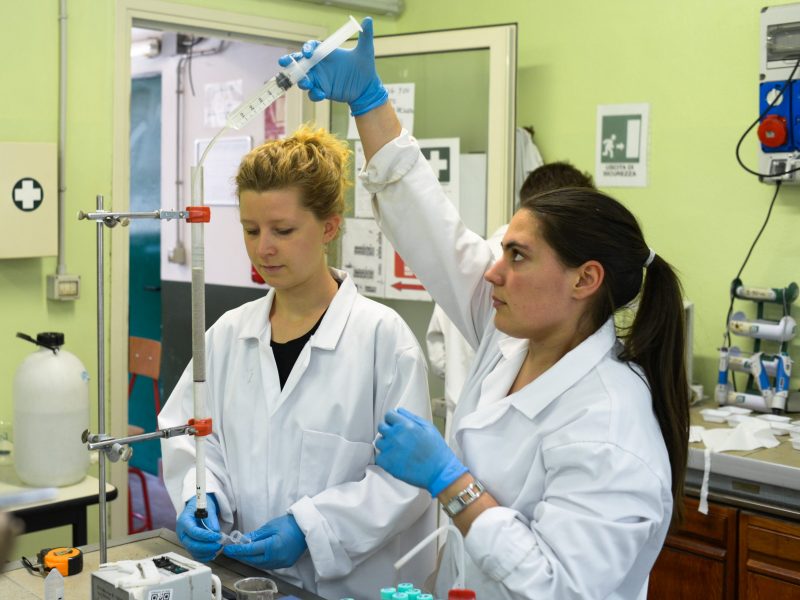Monica ha una laurea magistrale in Ingegneria per l’Ambiente ed il Territorio conseguita a settembre del 2019 ed un dottorato di ricerca nella stessa disciplina conseguito nel settembre 2024 entrambi presso il Politecnico di Torino.
Durante la sua tesi magistrale ha lavorato al progetto NANOGRASS, con lo scopo di sviluppare nanoformulazioni ecosostenibili di pesticidi con una mobilità ridotta nel sottosuolo, nelle acque di falda e nell’aria. Monica ha sviluppato una formulazione nanoerbicida innovativa usando materiali economici, sostenibili e facilmente reperibili.
Durante il dottorato di ricerca oltre a continuare lo studio relativo al progetto NANOGRASS, Monica ha studiato l’effetto di alcuni materiali ammendanti minerali e naturali su alcune proprietà chimico-fisiche del suolo e il loro ruolo nell’adsorbire e ridurre la dispersione in ambiente di alcuni pesticidi.
Al momento ricopre il ruolo di tecnico di laboratorio presso i laboratori del cento interdipartimentale clean water center C.W.C di cui il gruppo GW fa parte. In particolare, si occupa della gestione del laboratorio e di formazione del personale. Monica comunque non rinuncia a portare avanti la ricerca applicata sia da un punto di vista sperimentale che modellistico come appreso durante i passati anni da ricercatore all’interno del gruppo.
Nel tempo libero Monica dedica le sue giornate al volontariato presso alcune associazioni del piccolo comune in cui vive.

Pubblicazioni
Falciglia, P.P., De Guidi, G., Vento, F., Finocchiaro, G., Castro, E., Granetto, M., Tosco, T., Vagliasindi, F.G.A., 2024. Liquid activated carbon (LAC) – Enhanced microwave remediation of PAH – Contaminated soils. Separation and Purification Technology. https://doi.org/10.1016/j.seppur.2023.125628
Granetto, M., 2024. Implementation of novel technologies to reduce the environmental spread of pesticides in water and soil using natural mineral carriers and agri-food waste soil amendments (PhD Thesis). Politecnico di Torino.
Granetto, M., Serpella, L., Fogliatto, S., Re, L., Bianco, C., Vidotto, F., Tosco, T., 2022. Natural clay and biopolymer-based nanopesticides to control the environmental spread of a soluble herbicide. Science of The Total Environment 806, 151199. https://doi.org/10.1016/j.scitotenv.2021.151199